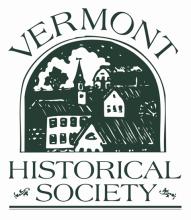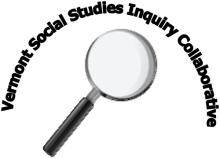
The Flow of History
ER #106 Contact: Sarah Rooker
Stating Your Case: Using Primary Sources to Develop Reading, Writing, and Thinking Skills is a 2-tiered professional development program which uses Library of Congress materials, the Stanford History Education Group model for analysis, and the Literacy Design Collaborative model to develop writing tasks that produce rigorous student analysis and writing. Level 1 teachers participate in two 1-day workshops. They are required to each create at least one writing task and administer it to their students. The group has a final after-school student work review session in the spring. Level 2 teachers commit to a year-long study group that meets in person and online. They work together to create inquiry-based case studies tied to their content area. Case studies include an inquiry question, primary source set, guided questioning based on SHEG Historical Thinking Skills that move students from sourcing to corroborating, and a final writing task. Participants test the case studies in their classrooms, collaboratively refine their work, and share what they learn with the wider TPS audience.

The Flow of History
ER #76 Contact: Sarah Rooker
In Their Shoes: Exploring Daily Life in Rural 19th Century New England is an inquiry-based simulation offering students context for understanding American History content and issues. Featured throughout is an interactive, inquiry-based way of engaging children with American History content using primary sources from the Library of Congress and local institutions.
Designed specifically for educators of elementary-aged children within the Connecticut River watershed, this TPS project uses the In Their Shoes curriculum as a prototype for local educators, helping to guide their own use of primary sources utilizing inquiry-based approaches and providing context for their lessons. Workshops provided through the Flow of History and Turning Points in American History offer strategies for navigating the Library of Congress website to find resources and ways to apply the resources in meaningful ways for elementary-aged students.

Vermont Historical Society
ER #43 Contact: Victoria Hughes
Old Documents, New Technology: Using Interactive Whiteboards to Explore Primary Sources is a professional development workshop for Vermont teachers who want to improve their abilities using interactive whiteboards and primary sources to teach United States and Vermont history. Using Primary Source Sets from the Library of Congress, the teachers develop interactive whiteboard lessons to use in their classrooms and to share with other educators. The lessons, with links to related Vermont primary sources, are available through the Vermont History Explorer web site www.vermonthistory.org/explorer. This course is a collaboration between the Vermont Historical Society and the Vermont Department of Education.

Champlain Valley Educator Development Center
ER #36 Contact: info@cvedcvt.org
Historical Forensics: A Simulation Game (HFSG) offers an interdisciplinary, inquiry-based curriculum that provides a flexible means for educators to engage their students in an exploration and analysis of primary source materials. Supported by the Champlain Valley Educator Development Center and Turning Points in American History, HFSG's goal is to help students consider multiple perspectives through research, synthesis, and reflection as they use historical clues to investigate local, state, and regional issues in19th century history. Within a game structure, students encounter the everyday experiences and struggles of a representative agricultural New England town. As they solve interactive challenges on simulated visits to places such as the general store, town hall, and cemetery, students work in teams, requiring communication, cooperation, reasoning, and critical thinking. Students learn about aspects of daily life during the 1800s including cottage industries, agricultural practices, education, legislation and civil rights issues, the role of religion, and commerce. In considering the complicated issues encountered daily by African Americans and other under-represented people living in pre-industrial New England, HFSG encourages students to develop their civic and social sensibilities. While responding to these difficult dilemmas, students strengthen their math, reading, writing, and problem-solving skills. Through critical analysis of historical evidence, HFSG offers a fresh approach to exploring social, political, and economic studies.
History and Technology: Integrating STEM Content into Elementary Classrooms through History-Based Themes by Jennifer Manwell and Charles Sullivan

Calvin Coolidge Presidential Foundation
ER #25 Contact: Diane Kemble
Vermont on the National Stage: An Inquiry Lab at the Calvin Coolidge Memorial Foundation extends its history education programming to incorporate inquiry activities based on primary sources. The new Coolidge Museum and Education Center opened on August 7, 2010, and is positioned to serve as a site for teacher workshops, educational conferences, and meetings, as an active resource to model the use of primary sources through activities with students on class trips, families, and to the public. The compelling topics of history are the inspiration for competent and purposeful reading and expressive and skillful writing, all in line with the Vermont Standards.
The goal is to design a program of teacher workshops that can serve as an introduction to using primary source documents which builds to serve the developing needs of educators. Integrating history activities with language arts is a way to strengthen reading, writing, and social studies skills. The program is sustainable as a primary source activity. Student visits to the site and at least one primary source workshop or program is a regular part of the Coolidge Foundation's education offerings. Another outcome is that as the Education Coordinator and volunteers become more adept at using primary sources themselves, more research possibilities about President Coolidge and his era become available. Straight Talk Newsletter Article published in the Rutland Herald July 30, 2010.

Vermont Social Studies Inquiry Collaborative
ER #15 Contact: Sigrid Olson
The Vermont Social Studies Inquiry Collaborative brings teachers, historians, and content/assessment specialists together around the goal of increasing student performance in the area of historical inquiry, specifically through the use of primary source documents. The group works together to create performance tasks and related instructional materials that focus on elementary-level Vermont History.
A 3-day summer workshop series introduces teachers to Vermont history content, primary source analysis, and historical inquiry. The workshop is followed up by online collaboration and 2 in-person workshops through the fall of 2009 as teachers classroom-test their lessons.